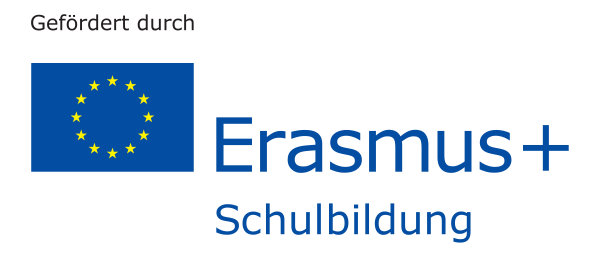
Transdigital Education –
Developing Key Competences through Holistic Learning and Teaching in the Digital Age
Partner Schools I Partnerschulen
Goetheschule Essen, Germany I Międzynarodowe Liceum Ogólnokształcące Paderewski w Lublinie, Poland I Siauliu Didzdvario Gimnazija, Lithuania I Ikast-Brande Gymnasium, Denmark I Voramar, Spanien
Project Overview I Projektübersicht
As the world becomes increasingly digital, both students and teachers face a number of unprecedented challenges. The key question is how schools may develop new learning and teaching methods to integrate digital media technologies across the curriculum while sustaining a balanced focus on the cognitive, affective, social and creative competencies needed by young Europeans in the 21st century.
In accordance with the ‘European Digital Competence Framework’ and the ‘European Framework for Digitally Competent Educational Organisations’, the goal of this project was to create an innovative, ‘transdigital’ learning and teaching approach based on the conviction that effective digital-age learning does not make isolated and ineffective use of digital devices and applications, but considers them as part of a holistic educational concept “to prepare students for a fulfilling and productive life in which their skills and attributes are constantly challenged, developed and applied as part of their lifelong learning” (J. Hare, Holistic Education).

Project Modules
Project Outline I Projektbeschreibung
The project “Transdigital Education. Developing Key Competencies through Holistic Learning and Teaching in the Digital Age” fostered a broad and sophisticated set of skills, competences and personal qualities in secondary school students between the age of 14 and 18 – and also teachers trained in the fields of Language and Literature, Natural Sciences, Human Sciences and ICT. The impact of the project became visible in the close international collaboration and the professional exchange of best practice among the project schools from Denmark, Germany, Lithuania, Poland and Spain, which strengthened the awareness for how digital and traditional methods and media may intertwine to meet individual learners’ needs.
In Module 1 we looked at the concept of bildung to gather ideas how to inspire educational change. Module 2 was based on a holistic understanding of the environment, which included scientific study, practical and creative work beyond the confines of the classroom and aesthetic appreciation. In Module 3, students explored ways of democratic and civic participation and met members of the European Parliament in Strasbourg. Module 4 was about character-building and personal mastery and encouraged students to take responsibility for their own personal and academic growth. Module 5 dealt with digital literacy and learner autonomy and promoted a self-conscious examination of the influence of virtual role models. Module 6 invited students to reflect criticially on different forms of learning and Module 7 allowed them to explore deep reading strategies, which required close, inferential analysis, analogical reasoning and a thorough deliberation of the value of cultural diversity and multiple perspectives. In Module 8 students finally discovered the potential of open learning through online courses and engaged in the construction of a project-based internet presence.
Methodologically, students collaborated within this 3-year project in a number of ways, both creatively and analytically. Activities ranged from the creative writing of hypertexts or Twitter novels and the design of eTwinning websites, Padlets and Youtube videos to the production of macrophotography, the conceptualisation of a rewilding initiative, the broadcast of an internet radio podcast, the making of a civic engagement portfolio and the compilation of an exhibition about digital and non-digital future trends.
The Main Project Outcome
The main project result was a website with videos, photos and reflections on the holistic implementation of digital learning. This website with its wide variety of teaching ideas, classroom resources and student sample work, based on learning experiences which were gathered during international project weeks and staff training sessions, offers a rich framework for future project work to all who are open to a ‘transdigital’ point of view.
……………………………………..
Illustration adapted from Morning Brew. Released into the public domain via Unsplash.

Follow us here to learn more about what is going on at our school: https://www.instagram.com/erasmusamgoethe

